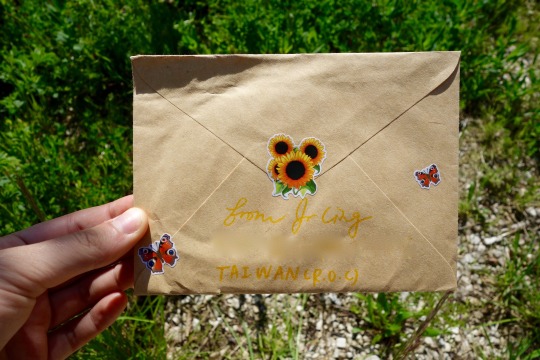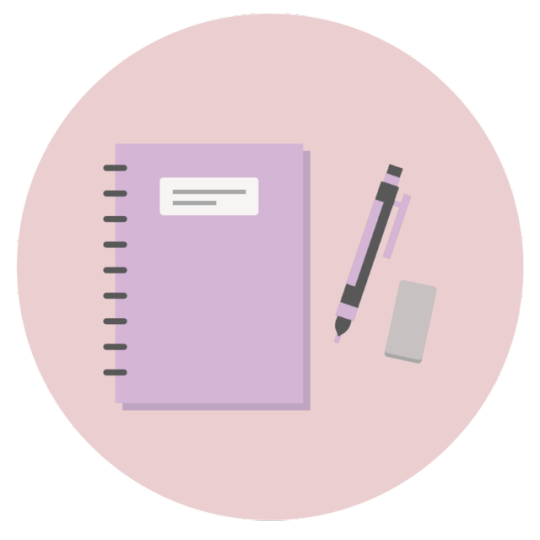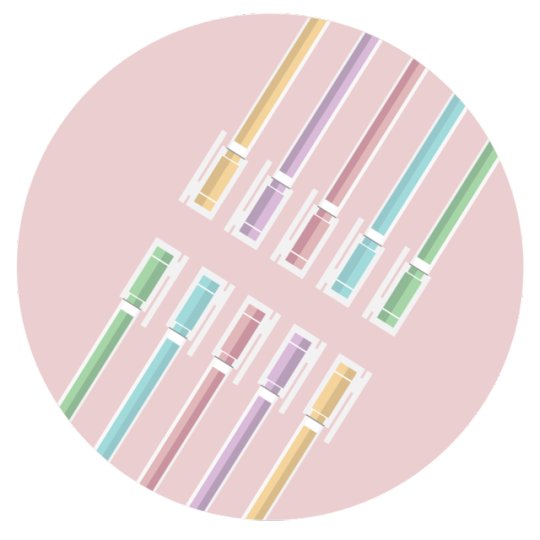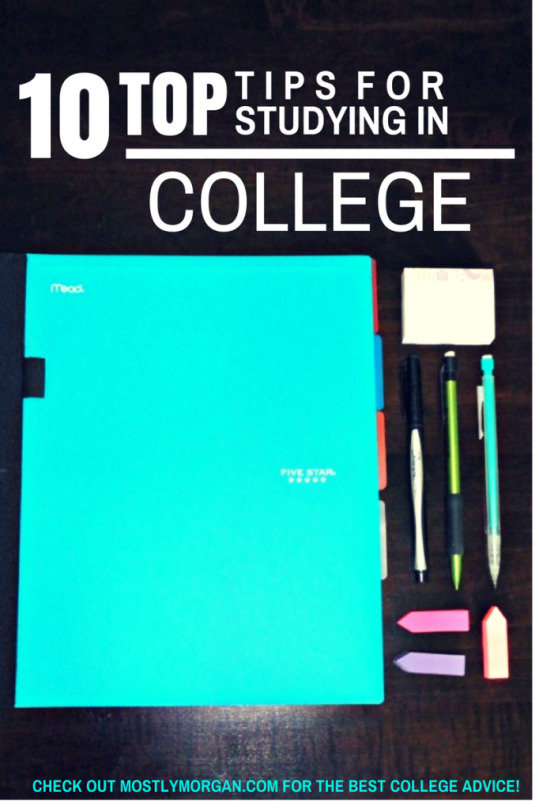studycell
2K posts
Sam | 20 | intp international student I track #studycell [email protected] south slavic languages | fluent english | fluent german | fluent swedish | beginner
Don't wanna be here? Send us removal request.
Photo

Day 38/100 days of productivity
I’ve been working on my civ pro take home midterm (writing a memo) for what feels like weeks at this point. My life has been this memo and I’m yearning for 5:01 pm tomorrow when this assignment is finally done with.
7K notes
·
View notes
Text
10 Things I Tell Myself When I Don’t Want To Study
1. You are very lucky and privileged to have access to almost unlimited knowledge and you should appreciate that.
2. Be one of those rare people who step over their insecurities and succeed.
3. You will know what to do as soon as you start. Ideas never appear from inactivity.
4. Make yourself proud.
5. It’s not supposed to be easy. Nothing good ever is.
6. One hour every day doesn’t feel much but its 365 hours a year. You can’t not succeed after so much work.
7. If you give up now, you’ll have to return to this later anyway but from the very beginning.
8. Maybe you think you can never find something to use your skills and mindset for. But if you continue investing in what matters to you, it will find its way out there.
9. Every moment you thought your fears would suppress you has become the time you made it.
10. Make yourself proud.
12K notes
·
View notes
Photo

@whitespacewriters Summer Sessions are nigh! Lemme just paint a little picture for you: it’s a balmy summer evening, the candles are flickering, the air is warm and fragrant. You’re curled up on a cozy chair, pen in hand, notebook open, scribbling away at the wildest thing you’ve ever written. Your blood may or may not be tinted with a hint of Shiraz. You may or may not be totally high on all that dusk-in-summer magic. You’re a clever, frugal person, so you’ve picked up a flexible four-class pass at whitespacewriters.com for $150. You’re making new pals, picking up new creative tools, rolling in inspiration like Scrooge McDuck rolls around in his money pit. I mean, what’s holding you back? C’mon over and create with us! 🤩
230 notes
·
View notes
Text
Alternatives for 25 overused words in writing
1. Interesting- note worthy; thought-provoking; fascinating; attracting; appealing; attention-grabbing; captivating; gripping; invigorating; engrossing; engaging; electrifying.
2. Beautiful- striking; stunning; magnificent; lovely; charming; gorgeous; radiant; dazzling.
3. Good- acceptable, wonderful, exceptional; positive; brilliant; first-rate; notable; stellar; favorable; superb; marvellous; prime.
4. Bad- awful; lousy; poor; unacceptable; crummy; dreadful; rough; inferior; substandard; atrocious; appalling; dreadful; defective.
5. Look- glance; fixate; observe; stare; gaze; peer; scan; watch; study; browse; eye; glimpse; review; inspect.
6. Nice- lovely; superior; pleasant; satisfying; delightful; likeable; agreeable; correct; adequate; swell; fair; okay; approved.
7. Very- extremely; exceedingly; exceptionally; immensely; tremendously; abundantly; particularly; remarkably.
8. Fine- satisfactory; worthy; respectable; exquisite; suitable; well; imposing; decent; admirable; praise-worthy; decent.
9. Happy- cheerful; delighted; pleased; content; amused; thrilled; elated; thrilled; ecstatic; on cloud 9.
10. Really- genuinely; truly; honestly; actually; undoubtedly; certainly; remarkably; incredibly; downright; unquestionably; extremely.
11. Sad- miserable; gloomy; devastated; down at heard; distraught; distressed; dispirited; sorrowful; downcast; feeling blue; desolate.
12. Big- massive; huge; giant; gigantic; enormous; large; colossal; immense; bulky; tremendous; hefty; sizable; extensive; great; substantial.
13. Shocked- taken aback; lost for words; flabbergasted; staggered; outraged; astonished; astounded; stunned; speechless; appalled.
14. Small- tiny; petite; mini; miniature; microscopic; minuscule; compact; pocket-sized; cramped; puny; undersized; limited; meager; modest; minute; pint-sized.
15. Angry- irate; enraged; touchy; cross; resentful; indignant; infuriated; wound-up; worked-up; seething; raging; heated; bitter; bad-tempered; offended; frustrated.
16. Know- understand; comprehend; realize; learn; perceive; recognize; grasp; sense.
17. Change- alter; transform; replace; diversify; adjust; adapt; modify; remodel; vary; evolve; transfigure; redesign; refashion; advance; transition; shift; adjustment.
18. Old- aged; ancient; matured; elderly; senior; veteran; decrepit; seasoned; venerable; past one’s prime; doddering; senile.
19. Think- ponder; reflect; conceive; imagine; contemplate; consider; determine; realize; visualize; guess/assume; conclude; envision.
20. Funny- comical; ludicrous; amusing; droll; entertaining; absurd; hilarious; silly; whimsical; hysterical; joking; witty; facetious; slapstick; side-splitting; knee-slapping.
21. Go- move; proceed; advance; progress; travel; walk; journey; depart; exit; flee; make one’s way; clear out; get underway.
22. Give- grant; donate; hand-out; present; provide; deliver; hand over; offer; award; bestow; supply with; contribute to; send; entrust.
23. Get- acquire; obtain; receive; gain; earn; gather; collect; buy; purchase; attain; score; secure; take possession of; grab.
24. Easy- effortless; simple; clear; smooth; straightforward; uncomplicated; painless; accessible; apparent; basic; plain; child’s play; facile; elementary; cinch.
25. Fast- agile; brisk; rapid; nimble; swift; accelerated; fleeting; high-speed; active; dashing; winged; hurried; turbo.
133K notes
·
View notes
Photo


if you truly love nature, you will find beauty in everywhere
- vincent van gogh
beautiful letter from jr ling, taiwan
26K notes
·
View notes
Photo


19 April 2018 | 28/50 Days of Productivity
Drank an inordinate amount of tea today.
4K notes
·
View notes
Text
How to be good at interviews:
I’m having next Wednesday my first professional interview (eeeeek) so I decided to share the research I’m doing. I googled all of this and chose the information I found most important, and organized it. I truly hope it’s helpful for someone out there :)
PLAN AND PRACTICE:
always do your homework: learn about the organization, its ideas and story
don’t necessarily memorize responses, but try to have a planned general strategy for answering common interview questions
practice in front of the mirror
be ready to briefly describe related experience
compare your qualifications to what the organization wants from you
COMMON INTERVIEW QUESTIONS:
“What’s your biggest weakness?” Think of a genuine issue you have as well as ways you have managed to work with/around it.
“What’s your biggest strengths?” Stand out from the crowd and don’t be afraid to speak about your strengths in an authentic and compelling way. See if your strengths align with the company’s needs.
“ Why do you want this job?”/ “Why should we hire you?” Stay focused on why your background makes you an ideal candidate and tell them how you are going to contribute to that department and that company.
“Tell me about yourself.” Don’t tell them your life story, instead discuss what your interests are relating to the job and why your background makes you a great candidate.
“Why did you leave your last job/position/school?” Do not go into details about your dissatisfaction, tell them that while you valued the experience and education you received, you felt that the time had come to seek outo a new opportunity, expand your skills and knowledge, and to find a company with wich you could grow. Try to put a positive spin on things. Be honest if you were fired but don’t trash your previous boss.
“Where do you see yourself in five years?” Be honest about what your greater aspirations are.
And much much much more (from your behaviour to work experiences, education, interests and motivation or problems and challeges you’ve faced previously), I would encourage you to try to write down some topics for each questions that work for you. Being prepared is everything.
THE DAY OF THE INTERVIEW:
sleep and eat well so you look rested and healthy on the big day
give yourself time to calm down/meditate/relax
don’t noodle around on your phone or electronic device while waiting - it may communicate boredom and frivolousness, maybe stick your notebook/notes
What to wear: normally it’s best to dress neutral, professionally/formal, not overly fashionable or trendy, and brightly colored clothing is bad. Make sure your clothes are neat and wrinkle free, and make sure your image is very clean and neat.
What to bring: if revelant, extra copies of your resume on quality paper, a notepad or professional binder and pen, information you might need to complete an application.
IMPORTANT TIPS:
make eye contact
show courtesy to everyone during the interview, this means everyone from the reception staff to the interviewer herself
smile
have good posture
avoid fidgeting too much or playing with your hair/touching face
have a good handshake
don’t cross your arms over your chest
walk, act, talk with confidence
be comfortable and relaxed
choose the words you say
don’t place stuff on their desk
manage your reactions - facial and body expressions give clues on how you feel: project a positive image
show interest and enthusiasm
show warmth and personality - being personable is about getting the interviewer’s emotional side to like you and believe in you
don’t lie to make it seem like you know something you don’t. You probably won’t fool your interviewer, and admitting to not know something is much more impressive than lying
be honest
keep things simple and short, talk in 30-90 second chunks. Any less and you’re likely to seem unqualified; any more and your interviewer is likely to lose interest in what you’re saying
THINK OF QUESTIONS TO ASK: participating actively during the interview gives a good impression of your level of interest in the job. Most of times it is more adequeate to ask in the end of the interview. But I feel like you really need to make sure your questions are adequate. Examples:
“What types of training opportunities do you offer?”
“What are the chances for professional growth in this job opportunity?”
“Is there anything else I can provide you with that would be helpful?”
ALWAYS ask the “ When can I expect to hear back from you about the position?” question if the interviewer does not tell you.
Good questions are open-ended, and thus cannot be answered with a “yes” or “no.” Better questions are behavioral: they ask how things are done or have happened in the past, because current and past behavior is the best predictor of future behavior.
AFTER THE INTERVIEW:
shake hands with the interviewer - try to invest some feeling into the handshake and pleasantries, even if you think you bombed the interview
hold your head high and keep your cool
your emotions are probably teetering at the highest of highs or the lowest of lows, but try to stay measured
project a cool confidence, not cockiness, and walk out of the interview with your head held high
SOMETHING TO ALWAYS KEEP IN MIND:
when you know in your heart and your gut that you bring to the table something just as valuable as a paycheck and maybe much more – your tremendous experience, intellect and instinct – you’ll carry yourself differently. You won’t trip over your words in an effort to please His Majesty or Her Highness, because you’ll see yourself and the interviewer as equals on a level playing field.
you are valuable and unique. You have something very special in you and you deserve to be given a chance. good luck!
25K notes
·
View notes
Photo


2nd May 2016 // Day 26/100
Studied with a bunch of friends today! Although we got kicked out of coffeebean (smh, it wasnt even peak period or a weekend), I’m glad we studied at the grass area as it was much more comfortable aND WELCOMING. 😾Malay paper 1, 3 and Social Studies tomorrow. Wish me the best of luck😬
18K notes
·
View notes
Photo


06.06.18 | Study, research, study 👩🏼💻
I’m spending the whole day today studying for and exam and writing a research paper for my neurobiology class, which is taking me ages to complete 😫
Fortunately, I have only one exam on Friday. I would be having two, but since I got a very good grade from physiology practical, I don’t have to take the exam! Which I’m extremely happy about! n addition to that, my motivation is now boosted because I aced my genetics test, which was yesterday 🙌🏻 Stay motivated! 🌟
zuzia
119 notes
·
View notes
Photo

01.30.2017 // Now it’s all done it’s time to put a little elbow grease into making this mid-year exam session useful!
30K notes
·
View notes
Text
On Mentoring Undergraduate Researchers
I’ve been to lunches, workshops, and talks teaching undergrads how to get involved in research and what it’s all about. I’ve never seen such a thing given to grad students or faculty on how to mentor said undergraduate researchers. Not once.
Having been involved in undergraduate research since 2008, first as an undergraduate researcher and later as a mentor, I now declare myself an authority on the topic. Or at least, I declare myself to have lots of opinions. Therefore, here is a compendium of some advice I have on working with undergraduates, answering some of the most common questions I hear from graduate student peers. Most of this advice is stolen from behavior I observed in Ethan Katz-Bassett, who mentored me and Colin Scott when we were undergraduates.
I would love to hear other thoughts in the comments from people who have worked with undergraduate researchers, or from undergraduates involved in research!
Finding “the good ones.”
Outreach to the CS student body at large. Both UW and Berkeley host poster/talk sessions where graduate students looking for undergraduate researchers can present to an audience of potential undergraduate researchers. Another way to outreach is to make an announcement to the class related to your subfield. I found all but one of my undergraduate researchers through Scott Shenker’s EE122 class. A somewhat common belief, which I think is a mistake, is to wait for undergraduates to approach *you*. While some might argue that these are the most ambitious students, I definitely disagree with such an assessment. The type of students who are willing to cold-email a professor/graduate student will usually fall in to one of two camps, half of which are actually not useful: (1) students who are truly ambitious and will work extremely hard (you want these), (2) students who think they’re hot stuff but won’t actually amount to much (you don’t want these). Further, if you wait for students to cold-email you, you’ll be missing out on a third, and very important category of students: students who are shy about their skills but looking for a chance to prove themselves. Students in this latter category often include students from non-traditional backgrounds or are under-represented minorities. Research can teach them to speak confidently about their work; their desire to prove themselves will push them to work diligently and reach their goals (you want these!).
Give them a mountain of work before you ever meet with them. Undergrads are busy – they take lots of classes, and many have outside activities – and they’re also often young and bad at time management. They may commit to work that they’re not capable of doing; don’t let them do this (to you). When I sent out my call for undergraduate researchers, I had something like 10-12 responses. I then emailed all of them a lengthy reading list of two papers and five websites, and then some basic questions to check whether they had actually synthesized what I’d sent. Not “quiz” questions, but the type of questions we might talk about at a first meeting, eg, “Given the list of middleboxes discussed in that article, which do you think would be most interesting to integrate in to X? Why?" 5 undergrads made it past that step, and only then did I schedule an in-person meeting with them. 4 of those 5 are still working with me a year later – bingo, I found the ones who are able to commit time.
Prioritize work ethic over "smarts.” I never ask prospective students for CVs, grades, course lists, etc. Okay, there are some fields, e.g. Theory, that require a serious level of mathematical maturity before anyone becomes useful. You should probably check that the students you work with are capable of that. But for the most part, most students at UW and Berkeley are competent enough to learn things on the fly, code some useful tools, and do something productive if they’re able to put in the time. You may need to tailor projects to an individual student’s skillset, but I’ve found that I haven’t had too much trouble with such tailoring – even when working with a freshman.
Making The Whole Thing Successful
Be flexible regarding time. Because of classes, undergrads tend to have very bursty schedules when they’re free to do research. The week after midterm they might put in 20 hours, the week of midterms they might put in none. Make sure in the long-run that they’re making progress, but be prepared to say, “Go. Study for finals. I’ll see you in two weeks!”
Sign off on academic credits. If your student wants to do research “for credit”, you should almost certainly say yes. Signing off on academic credit means they’re guaranteed to have time for their project. It’s just win-win for everyone - they get academic credits, you get guaranteed time. It’s just a good idea.
Individualize their projects. A good undergraduate project is part of a larger whole, but is self-contained for the student. For example, the Reverse traceroute algorithm includes four measurement techniques. As an undergrad, Ethan assigned me to “own” just one of the techniques. This gave me a piece that I had pride in, that I understood the context for, that I understood in entirety when it was done. If you assign students a scattering of tiny bits of a project, it’s often hard for them to see why each piece is important, or why they should feel ownership or pride in anything to do (making it hard for them to feel motivated to work).
Keep undergrad projects off the critical path until you know them well. You do not want to be sitting two days before the deadline to realize that a critical component of your paper is missing because finals happened and one of your students disappeared. Good projects for undergrads are usually those “extra” pieces of interesting analysis, that might improve the paper, but won’t make or break it. With the netcalls project, we needed several examples of applications that used our architecture. Sylvia and I came up with four examples and assigned them to five students. When one of them didn’t come through, that was okay – we still had three other examples we could put in the paper.
Assign projects you mostly have planned out. Grad students and advanced researchers have a lot of context that undergraduates new to research just don’t have – what are the right questions to be asking, how do I go about taking an open-ended question and turning it in to an experiment/plan, etc. Good project: “Implement a system that does X using this specific architecture and these tools.” Bad project: “How would you implement a system that does X?” Good project: “Run these measurements and experiments and tell me whether system Z has property A.” Bad project: “Does system Z have property A?"
Be ready to dig into the details. Undergrads are still building up their basic skills – how to use toolsets, specific programming languages, etc. They may get stuck on some of the details, and you should be ready to help them dig in to it. Don’t let them get stuck on a stupid bug for three weeks that a more experienced programmer would catch quickly – it slows them down, and consequently you down.
Meet with them 1:1 unless they’re explicitly working together. In an effort to better manage my own time, last Spring I tried having a group meeting with all of my students once a week. This was a waste of time for the students – they spent most of the time checking their email while I talked with the other students. This semester, I meet with two of the students together (because they’re working as partners), and then two others for a shorter period each. The overhead turned out to be not so bad when I scheduled them back to back with other meetings.
Don’t get an army unless you’re really prepared to spend a lot of time with students. You do not want 12 undergraduate researchers unless you are a very special person. Stick to a number you can keep track of individually, otherwise you’ll forget what they’re doing, they’ll forget what they’re doing, and not much will get done by anyone.
Being a Good Mentor and Making it Worthwhile for the Student
Make them co-authors on papers that they contributed to. Even if their contribution is small. It surprises me that I even have to say this, but I’ve watched graduate students leave undergrads off author lists before, probably more as a mistake than out of malice. It hurts no-one to have another author on the paper, it helps the undergrad a lot if they apply to grad school to be an author, and it’s The Right Thing To Do. People who contribute to a research project deserve authorship.
Find out their post-graduation plans and help them towards it. If their goal is grad school, make sure they are prepared for their applications (due December) and that they have at least three faculty who can serve as letter writers. Help them talk about their work and consider what they might write in an SoP. If their goal is industry, give them implementation-heavy work that allows them to have projects to show off on their CV. Connect them to colleagues in industry who can hire them as interns – perhaps in a field they are "specialized in” due to research with you. (Brag time: one of my graduating students this Spring is headed to Symantec to work on network security appliances, i.e, middleboxes! He found that job himself though :-)
Find them opportunities to present their work and talk about it. Many researchers I know remember their first talk or poster session, how terrified they were to do it, and how much they learned from it. Talking about your work makes you really synthesize what you did and why it’s important. Hearing questions from others helps you move your work forward. And, it reminds you that the work you did is new, novel, and interesting to an outside audience – great affirmation for undergrads! Opportunities at Berkeley include the CoE undergraduate research poster session and various lab lunches. At UW, Mary Gates Hall hosts a whole undergraduate research symposium every spring – and undergrads on the honors track are required to give a thesis talk. Along the way, teach them this mantra that I learned from Ethan. What did you do? Why was it hard? Why is it important?
Invite them to talks and reading groups. Let them know that they’ll be in over their heads for the first few months, but listening to current work in the field will help them to connect their work to the greater context, get a sense for the state of the art across the field, and see how people go from problem statement to solution for many many problems.
Nominate them for honors and awards. You know those announcements about the scholarship for X or award for Y that go out to the email lists? Nominate your undergraduates for these. Receiving an award for my research as an undergrad was a big turning point in my confidence as an undergrad – it also helped me out a ton as I applied to grad school. Every university has school-specific awards, and national awards like the CRA undergraduate research award or the ACM Poster Award are out there too. It looks good for you, too. My undergraduate advisors - faculty included - have the awards won by their undergraduate researchers listed on their CVs.
Treat them like real researchers from Day 1. They, and you, will get a lot more out of the undergraduate research experience if you respect the contributions of their work, treat them as an important part of your research team, and ask them their opinions on things as colleagues. Frankly, this behavior scared the hell out of me when Ethan did it to me (Why do I have an opinion!? I don’t know what I’m doing!) but in the end it made me feel like the work I was doing was important and drove me to really understand and and contribute to our project.
6 notes
·
View notes
Photo



Spent the evening playing around with Photoshop and watching The Keepers on Netflix! I ended up creating these and wanted to share them! Feel free to save and use them!
4K notes
·
View notes
Photo

Get Organized
I wrote an entire post on getting organized in college, but let me gloss over the key points:
♦ Write everything down. If you have to do it in the future, it should be written down.
♦ I highly recommend a whiteboard so you can prioritize and rearrange your to-do lists.
♦ Your homework area should be kept clean. If there is a mountain of loose papers, food wrappers, or anything else covering your desk, you are going to be so much less likely to actually start working. Keep your desk clean.
Get a study buddy
Find a like minded friend to study with. You’re going to want to study with someone that you won’t get off track with. I have found asking someone I only sort of know from one of my classes to study with me worked a lot better than studying with my friends. Not only do we not have much to talk about other than the only thing we have in common – our class, but it’s an easy way to make friends. During your study session you’ll probably stay pretty focused on the material, and you may also find that you enjoy each other’s company as well.
Read More…
578 notes
·
View notes
Photo

100 Days of Productivity - Day 78/100 April 19th, 2018
I finished writing notes on a chapter of my current SOR topic today, which was productive. I’ve also been doing research into computer specs - I want to undergo the task of building my own PC for video editing and gaming *cue the dramatic music* If any of you have any tech advice, please share!
Insta @ isthisnametakenyet
1K notes
·
View notes


